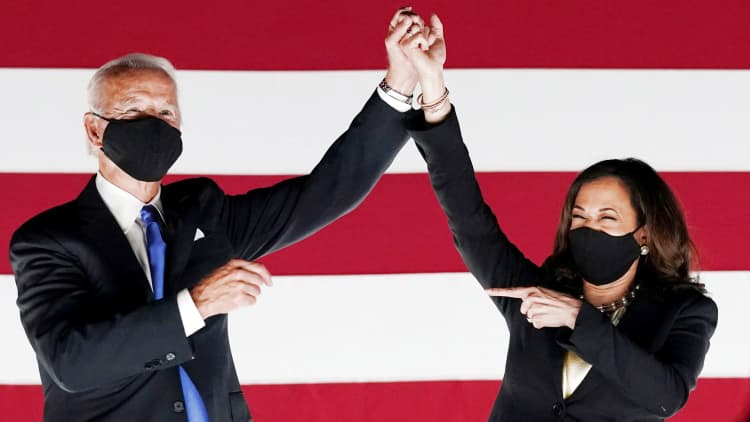
Stocks rose on Tuesday after House Speaker Nancy Pelosi signaled Democrats and the White House were making progress in negotiations for a new fiscal stimulus deal.
The Dow Jones Industrial Average closed 113.37 points higher, or 0.4%, at 28,308.79. The 30-stock average was briefly up more than 300 points. The S&P 500 gained 0.5% to end the day at 3,443.12 and the Nasdaq Composite advanced 0.3% to 11,516.49.
Shares of Carnival Corp. and American Airlines rose 3.3% and 1.9%, respectively, as company groups that would benefit the most from the economy reopening led the way higher. Kohl's jumped 6.6% and Nordstrom advanced 1.2%.
Pelosi, D-Calif., said on Tuesday that both sides made progress in their negotiations. "Hopefully by the end of the day, we'll know where we all are," Pelosi told Bloomberg TV. "But I'm optimistic."
Pelosi gave the Trump administration 48 hours on Sunday to reach a deal on new aid before the Nov. 3 election. However, she said on Tuesday about the 48-hour deadline: "It isn't that this day was a day that we would have a deal, it was a day that we would have our terms on the table to be able to go to the next step."
She and Treasury Secretary Steven Mnuchin were expected to talk Tuesday afternoon.
"Fiscal stimulus is the most important thing to the market right now," said David Wagner, portfolio manager at Aptus Capital Advisors. "You're seeing that with the market trading up and down each day just on the progression of the stimulus talks."
"The American people need stimulus right now; they're hurting right now," Wagner said.
Stimulus negotiations have hung over the market for months after the main provisions from the CARES Act expired at the end of July. Since then, job growth has slowed but consumer spending has continued to recover. However, some indicators have shown that savings built up by the massive economic relief package are starting to run out.
House Democrats have passed two additional relief bills that found no traction in the Republican-controlled Senate, which is moving to vote on a $500 billion targeted relief package later this week. The most recent bill from House Democrats was $2.2 trillion, while the counteroffers from the White House have crept up to about $1.9 trillion in recent weeks.
Andrew Smith, the chief investment strategist at Delos Capital Advisors, said that failing to pass a stimulus deal this week would not send the economy back into a recession but would make the recovery tougher.
"We don't believe that the new business cycle necessarily will be deterred if a stimulus deal doesn't get done, but we do believe, if a stimulus deal on the fiscal side gets done, that will help propel the economy into that new business cycle a lot quicker than what we expect so far," Smith said.
Stocks also rose after the Moderna CEO told the Wall Street Journal that the company's coronavirus vaccine could be available for emergency use in December if it gets positive results from its interim trial in November.
Dow member Travelers jumped 5.6% on the back of better-than-expected quarterly results. The company posted a profit of $3.12 per share on revenue of $7.77 billion. Analysts polled by Refinitiv expected earnings of $3.03 per share on sales of $7.55 billion.
—CNBC's Eustance Huang contributed to this report.



